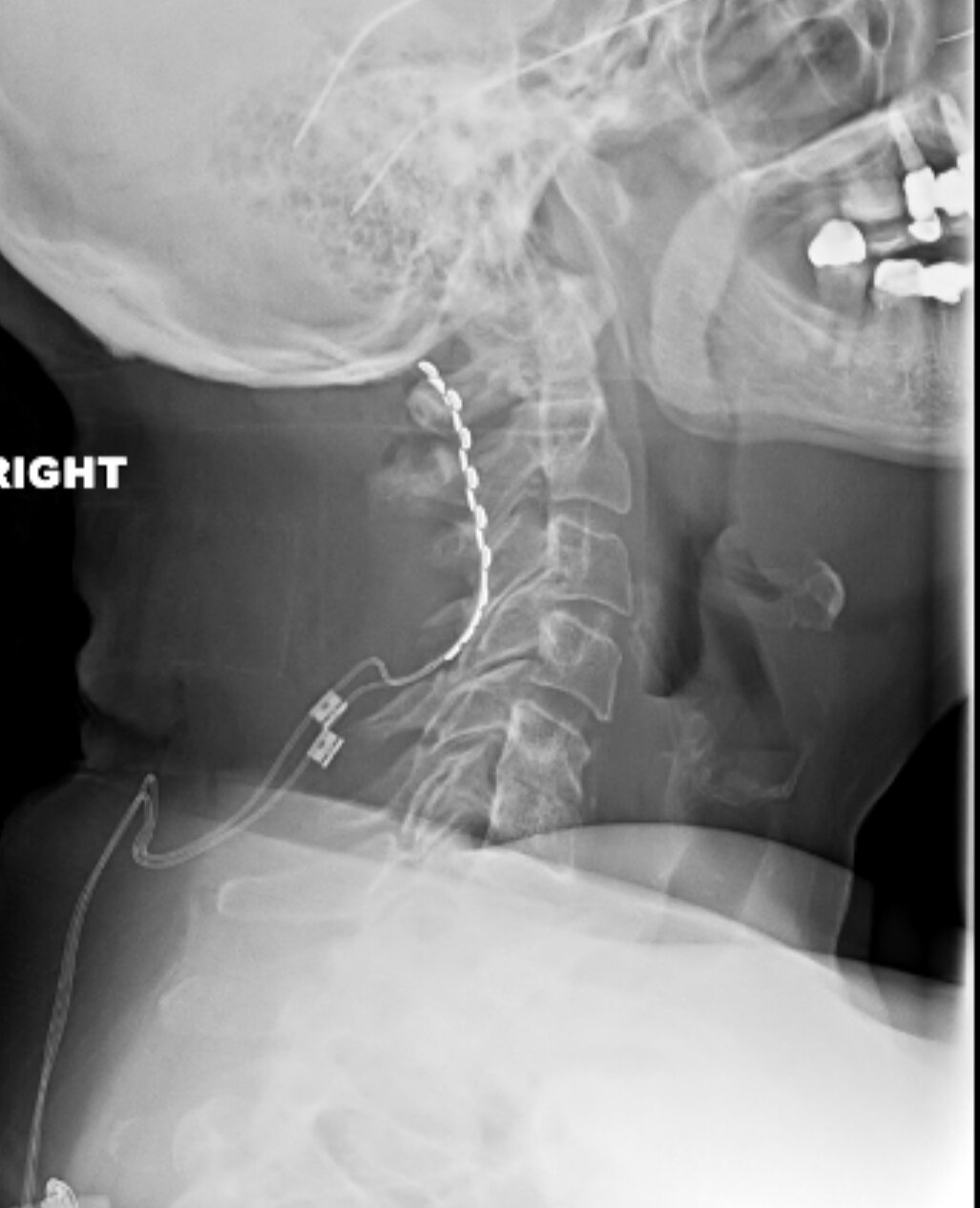Failed Neck Surgery Syndrome
Failed neck surgery syndrome is a condition in which there is severe, chronic pain in the neck and/or arms after one or more operations on the cervical spine. The risk of failed neck syndrome appears to increase with number of cervical spine surgeries a patient has had. The term is not meant to imply that there was a problem with one of a patient's surgeries but rather that symptoms have persisted.
When evaluating a patient with neck or arm pain after spine surgery, it’s important to rule out structural causes that might be resolved with medications, injections, or a revision surgery: persistent nerve compression causing cervical radiculopathy, non-fusion (pseudoarthrosis), vertebral fracture, adjacent segment disease, disc herniation, hematoma or infection, and others. This may involve additional studies, such as a CT or MRI scan, X-ray, or EMG. Failed neck syndrome is considered after ruling out the above structural problems.
Clinical studies have suggested that additional corrective surgeries on the cervical spine (e.g. fusions and laminectomies) are unlikely to improve symptoms in patients with features of failed neck surgery syndrome. For patients who experience persistent, disabling pain despite medications, physical therapy, and injections, spinal cord stimulation can be an excellent salvage therapy. Randomized controlled trials have supported the effectiveness of spinal cord stimulation for both neck and arm pain.
X-ray of a cervical spinal cord stimulator.

